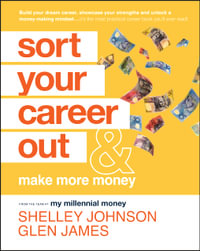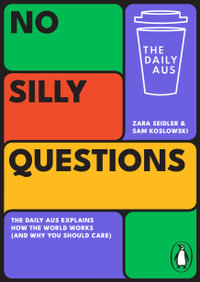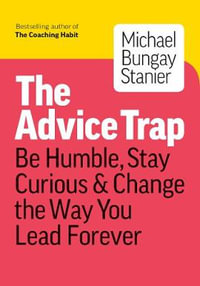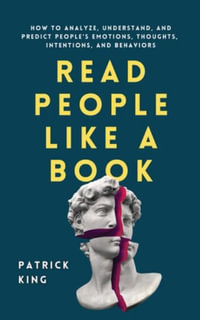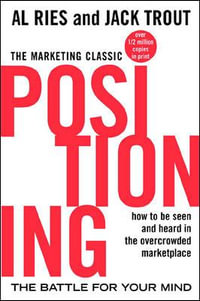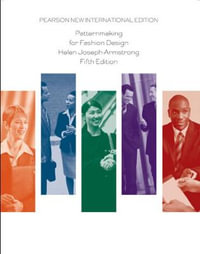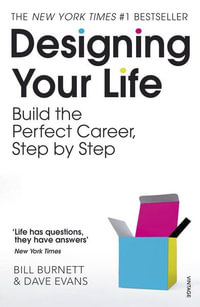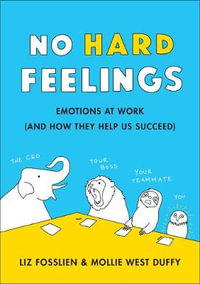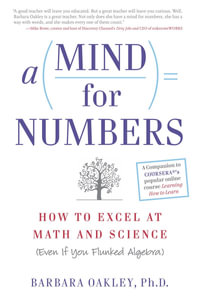
The Fuzzy and the Techie
Why the Liberal Arts Will Rule the Digital World
By: Scott Hartley
Paperback | 5 June 2018
At a Glance
304 Pages
20.32 x 13.34 x 2.54
Paperback
$42.88
or 4 interest-free payments of $10.72 with
orAims to ship in 10 to 15 business days
This Financial Times Business Book of the Month from a leading venture capitalist offers a counterintuitive look at what skills are necessary in the age of AI.
Finalist for the 2016 Financial Times/McKinsey Bracken Bower Prize
"Scott Hartley artfully explains why it is time for us to get over the false division between the human and the technical." --Tim Brown, CEO of IDEO and author of Change by Design
Scott Hartley first heard the terms fuzzy and techie while studying political science at Stanford University. If you majored in humanities or social sciences, you were a fuzzy. If you majored in computer or hard sciences, you were a techie. While Silicon Valley is generally considered a techie stronghold, the founders of companies like Airbnb, Pinterest, Slack, LinkedIn, PayPal, Stitch Fix, Reddit, and others are all fuzzies--in other words, people with backgrounds in the liberal arts.
In this brilliantly counterintuitive book, Hartley shatters assumptions about business and education today: learning to code is not enough in the age of AI. Rote and routine tasks may go to machines, but that is exactly why the soft skills taught through the liberal arts--curiosity, communication, and collaboration, along with an understanding of ethics and psychology--are essential in the future of work. It's the humanities, and the liberal arts, that give humans our comparative advantage against machines. Fuzzies, rather than techies, have the essential skills ready to shape and define our future of jobs, robotics, artificial intelligence, and machine learning. This understanding of ethics and grounding in humanity is no longer an academic nice-to-have; it is the essential skill in the future of work.
For anyone doubting whether a well-rounded liberal arts education is practical in today's era of artificial intelligence, Hartley's work will come as an inspiring revelation for the future of work.
Industry Reviews
"This terrific book clearly articulates the importance of the liberal arts in our technocentric world, a view I have long supported. In the end, technology is about making the lives of humans better, and, as the author argues, it is the humanities and social sciences that teach us about the human condition and how it might be improved. A delightful read!"--John Hennessy, Chairman of Google, Inc. and President Emeritus of Stanford University
"Scott Hartley artfully explains why it is time for us to get over the false division between the human and the technical. If received and acted upon with the seriousness it deserves, we can anticipate real benefits for business and society."--Tim Brown, CEO of IDEO and author of Change by Design
"Scott Hartley's timely and thought-provoking book is a refreshing and important voice in the era of major technological transformation and advances in our world, led by Big Data, AI, Cloud, genomics, etc. As nature has evolved our brain to be capable of logical reasoning as well as emotional feelings, artistic expressions, and remarkable intuitions, human civilization has always evolved and benefited from the coevolution of arts, literature, engineering, and sciences. Humanity has begun the era of intelligent machines and genomic wonder tools. It has become more urgent and imperative that humanistic thinking and values can help guide the way technologies are designed, experimented, deployed, and communicated. From digital humanities to humanistic technologies, human wisdom should be all in when it comes to designing and defining our collective future. Students, parents, educators, policymakers, CEOs, and entrepreneurs should all read this book." --Fei-Fei Li, director of the Stanford Artificial Intelligence Lab
"For generations, leadership has been viewed as an art form, refined and perfected by a healthy dose of 'fuzzy' liberal arts education. But in the tech-heavy world of the twenty-first century, traditional leadership preparation needs to be leavened by STEM. As Scott Hartley brilliantly illustrates, a 'fuzzy-techie' partnership is a prerequisite--not just as a guide for governments and businesses in meeting existential challenges but also as a foundation for emerging leaders; they, not machines, will be the keys to solving the greatest problems of the new century."--Daniel W. Christman, lieutenant general (ret.) and 55th superintendent, U.S. Military Academy, West Point
"Great book for all. Blows up the false dichotomy in education between tech and liberal arts. This book shows that not only can both coexist; it is dangerous if they don't both exist side by side in an integrated manner. They make each other more effective. Scott has done an excellent job of making his argument with facts, illustrative case studies, and well-reasoned solutions. An important and enjoyable read."--Bill Aulet, author of Disciplined Entrepreneurship and managing director of the Martin Trust Center for MIT Entrepreneurship
"Silicon Valley is founded on strong engineering cultures, but the biggest challenges of the coming decades will lead Silicon Valley to partner with those who best understand our humanity. Many of the greatest companies are built by fuzzies and techies working together--Scott makes a compelling case that important data and information are increasingly generated by machines, but the wisdom of humans is required to build this data into the knowledge that runs our civilization."--Joe Lonsdale, cofounder of Palantir
"In this book Scott Hartley succeeds better than anyone I know in articulating the indispensable role a liberal arts education plays...One of the impacts of technology has been to democratize freedom scholarship and passion. Scott Hartley lays this out in plain language that a liberal arts education trumps early specialization in STEM subjects."--Temba Maqubela, headmaster of Groton School
"I am a 'fuzzy' venture capitalist who owes a successful life in Silicon Valley to the 'techies.' Scott Hartley has brilliantly described the magic that is created when these two tribes work together. His insightful book shines a bright light on this rarely analyzed but highly productive relationship."--Bill Draper, co-chair of the Draper Richards Kaplan Foundation and author of The Startup Game: Inside the Partnership Between Venture Capitalists and Entrepreneurs
ISBN: 9781328915405
ISBN-10: 1328915409
Published: 5th June 2018
Format: Paperback
Language: English
Number of Pages: 304
Audience: General Adult
Publisher: MARINER BOOKS
Country of Publication: US
Dimensions (cm): 20.32 x 13.34 x 2.54
Weight (kg): 0.22
Shipping
| Standard Shipping | Express Shipping | |
|---|---|---|
| Metro postcodes: | $9.99 | $14.95 |
| Regional postcodes: | $9.99 | $14.95 |
| Rural postcodes: | $9.99 | $14.95 |
How to return your order
At Booktopia, we offer hassle-free returns in accordance with our returns policy. If you wish to return an item, please get in touch with Booktopia Customer Care.
Additional postage charges may be applicable.
Defective items
If there is a problem with any of the items received for your order then the Booktopia Customer Care team is ready to assist you.
For more info please visit our Help Centre.
You Can Find This Book In

Let's Change the World
How to Work within International Development Organizations to Make a Difference
Hardcover
RRP $57.99
$42.75
OFF

